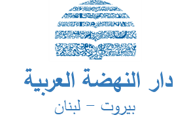Memory and the Learning Process
DOI:
https://doi.org/10.71090/gzbqr796Keywords:
Memory, Learning, Teaching, Identity, Recollection, Life Experiences, Indoctrination, Interactive EducationAbstract
Memory is one of the most fundamental yet mysterious mental capacities. It serves as a cornerstone upon which our identity, life experiences, and knowledge are built. Without memory, individuals lose their connection to the past, their ability to learn from experience, and their capacity to plan for the future—becoming instead confined to an isolated and perpetual present. Owing to this significance, memory has long been a subject of fascination for philosophers and scientists alike. From Aristotle’s reflections on the nature of recollection to contemporary neuroscientific research, the quest to understand the mechanisms of memory has remained a central concern of human inquiry.
The interrelation between memory and learning, therefore, raises several essential questions. Why should these two concepts be addressed together? Is their integration a necessity in contemporary education? Can the process of learning occur without accumulated experiences, deeply rooted behaviors, and internalized values?
Learning is not merely the acquisition of isolated information; it inherently requires processes of reflection, recall, evaluation, and adjustment. Memory, in this context, cannot be disregarded. It constitutes the bridge that enables the transition from experience to comprehension, and from information to meaningful knowledge. Far from being a passive repository of past events, memory functions as the very foundation and driving force of continued learning. Without reliance on stored knowledge, authentic and sustainable learning cannot take place.
This study will examine the role of memory in both learning and teaching, with particular emphasis on how everyday skills and habits can be harnessed to enhance memory performance. It will also underscore the importance of collaboration between parents and teachers in enriching and supporting memory development.
Ultimately, the study will argue that the quality of education cannot be achieved through rote memorization and passive reception alone. Rather, it requires the adoption of strategies and methodologies that foster active participation, engagement, and meaningful interaction between teacher and learner. Within such an environment, the learning process becomes dynamic, purposeful, and oriented toward long-term intellectual growth.





